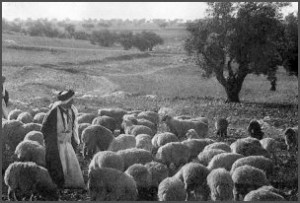Paul writes in his second letter to the Thessalonians…
For even when we were with you, we would give you this command: If anyone is not willing to work, let him not eat. For we hear that some among you walk in idleness, not busy at work, but busybodies. Now such persons we command and encourage in the Lord Jesus Christ to do their work quietly and to earn their own living. (2 Thessalonians 3:10-12 ESV)
I have always attributed the notion to not eating with not working within the context of this passage, relating to idleness. But the more I study, seeking to understand how to walk according to the ways of the Creator, the more I discover this notion is fundamental to the existence of mankind.
Working for Food
Genesis 1:26-30 tells us…
Then God said, “Let us make man in our image, after our likeness. And let them have dominion over the fish of the sea and over the birds of the heavens and over the livestock and over all the earth and over every creeping thing that creeps on the earth.”
So God created man in his own image, in the image of God he created him; male and female he created them. And God blessed them.
And God said to them, “Be fruitful and multiply and fill the earth and subdue it, and have dominion over the fish of the sea and over the birds of the heavens and over every living thing that moves on the earth.”
And God said, “Behold, I have given you every plant yielding seed that is on the face of all the earth, and every tree with seed in its fruit. You shall have them for food. And to every beast of the earth and to every bird of the heavens and to everything that creeps on the earth, everything that has the breath of life, I have given every green plant for food.” And it was so.
From the very beginning of creation it was established that the seed-bearing plants and fruit-bearing trees were meant to feed mankind. Continue reading


